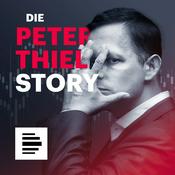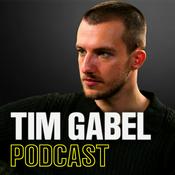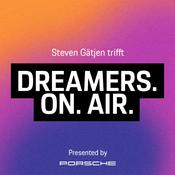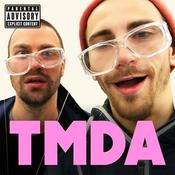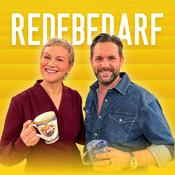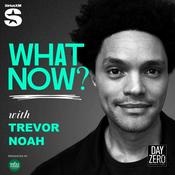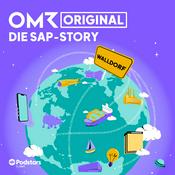399 Episoden

Robots and reality
18.10.2025 | 49 Min.
Are we entering an era when robots will finally liberate people, and particularly women, from the drudgery of housework? There is certainly a buzz around domestic robots right now and every month seems to bring us a new autonomous machine that can fold your clothes or stack your dirty dishes. But while impressive, these robots are still much slower and clumsier than any human, even a child. The foundations of modern robotics were laid back in the 1950s and yet progress since then has been slow and uneven. So what has been holding it back?Iszi Lawrence discusses the past and present of domestic robots with robot designer and researcher Usman Roshan; robot historian Ben Russell, curator at the Science Museum in London; writer of robot fiction Emma Braslavsky and Dr. Maartje de Graaf who studies robot errors. Plus World Service listeners tell us about their favourite robots.(Photo: An artist's impression of a robot cleaning a house. Credit: Maciej Frolow/Getty Images)

Weddings: Romance and ritual
20.9.2025 | 48 Min.
One of the first recorded examples of a marriage ceremony is dated more than 4000 years ago in Mesopotamia. And it seems that through the ages, weddings have never lost their appeal. The global wedding industry is today worth billions of dollars, and it is one that keeps on growing.While aspects of weddings differ across many cultures, they celebrate the coming together of two people in a form of contract which establishes rights within the couple. Historically, marriages were often economic, legal and social tools; the love aspect that some marriage ceremonies came to represent was developed much later.Iszi Lawrence investigates how weddings have changed over time with a panel of expert guests, including Dr Vicki Howard, Visiting Fellow in the Department of History at the University of Essex (UK) and the author of Brides, Inc.: American Weddings and the Business of Tradition; wedding planner Marie Haverly, Deputy Head of the Business School and senior lecturer in event management at the University of Winchester in the UK; and wedding photographer Shanaya Arora, one half of Nitin Arora Photography which she founded with her husband. Shanaya is also the host of WED FM India, a podcast all about weddings.Producer: Fiona Clampin(Photo: Comet and Phakalane Mmisi, dance just after they were married, Johannesburg, South Africa, 11 July 2008. Credit: Per-Anders Pettersson/Getty Images)

The unfolding history of the magazine
16.8.2025 | 48 Min.
When magazines first emerged, they were the preserve of an elite who could afford to pay for them. But as time went on, the cost of paper fell, printing technology became more streamlined, literacy improved and would-be publishers spotted an opportunity to connect with audiences hungry for information and entertainment.Magazines found a place to appeal to all types of interest, in the same way that the internet does today. In their heyday they attracted some of the best writers such as Charles Dickens and Ernest Hemingway, sometimes acting as a vehicle to establish literary careers. Later magazines were to become the go-to place for quality photography and design.Falling advertising revenues have largely contributed to the decline of printed magazines, as well as editions moving online. However some titles have found a way of reinventing themselves in the 21st century.Iszi Lawrence is joined by a panel of guests to discuss the rise and evolution of magazines. Usha Raman is a professor in the Department of Communication at the University of Hyderabad in India, who began her career in magazines, writing and editing a variety of publications. She's also the owner and editor of a specialist magazine for teachers.Samir Husni is the founder and director of the Magazine Media Centre in the United States. He's also written many books, including Inside the Great Minds of Magazine Makers.And Tim Holmes is a former magazine editor, writer and until his retirement, leader for many years of the magazine journalism course at the University of Cardiff in the UK. We'll also hear from a variety of Forum listeners from around the world, who share their thoughts on magazines.Produced by Fiona Clampin for BBC World Service.(Photo: Newspapers and magazines on display at a newsstand on January 31, 2010 in Khan Market New Delhi, India. Photo by Rajkumar/Mint via Getty Images)

Movie theatre magic
19.7.2025 | 49 Min.
The speed with which cinema caught the public’s imagination is remarkable. The first film screenings took place in the 1890s and just two decades later, in the US alone there were thousands of nickelodeons and other spaces where you could watch a movie. Luxurious picture palaces followed soon after and not just in the West: some of India’s Art Deco cinemas are real feasts for the eyes. But the arrival of TV fundamentally changed our relationship with movie theatres and they have struggled to remain central to our film culture ever since.Iszi Lawrence explores the 120-year development of movie theatres with film historian Professor Ross Melnick, Professor of Cinema Studies Daniela Treveri Gennari, cinematographer Hemant Chaturvedi who is documenting India’s historic cinema buildings, Chinese cinema researcher Professor Jie Li and World Service listeners.(Photo: Kannappa Cinema, Padappai, Tamil Nadu. 2024. Credit: Hemant Chaturvedi)

Customer service: The rise of the doom loop
21.6.2025 | 49 Min.
The quality of customer service can make or break a company. That has always been true but the kind of customer experience we now expect when things go wrong with our purchases is vastly different from what we wanted half a century ago. 1960s answering services, the new organisations managing calls on behalf of businesses, relied on a single technology: the telephone. Now a firm needs to offer its customers multiple ways to contact it. But which one should a company prioritise, especially in these financially straitened times? The latest AI-enabled chatbots? Well-trained, empowered people in call centres? Or something else entirely? And how do these changes impact customer service representatives, the people who actually deliver the service to us every day?Iszi Lawrence discusses these questions with Jo Causon, CEO of the Institute of Customer Service in the UK; call centre researchers Professors Premilla D’Cruz and Ernesto Noronha from the Indian Institute of Management in Ahmedabad; Franco-American service designer Matthew Marino and World Service listeners.(Photo: A woman in jeans interacting with virtual contact icons on a screen. Credit: Umnat Seebuaphan/iStock/Getty Images)
Weitere Gesellschaft und Kultur Podcasts
Trending Gesellschaft und Kultur Podcasts
Über The Forum
Höre The Forum, Hotel Matze und viele andere Podcasts aus aller Welt mit der radio.de-App
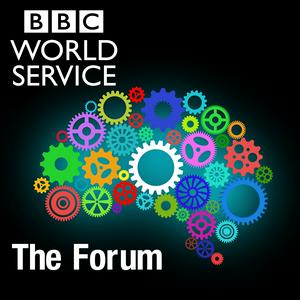
Hol dir die kostenlose radio.de App
- Sender und Podcasts favorisieren
- Streamen via Wifi oder Bluetooth
- Unterstützt Carplay & Android Auto
- viele weitere App Funktionen
Hol dir die kostenlose radio.de App
- Sender und Podcasts favorisieren
- Streamen via Wifi oder Bluetooth
- Unterstützt Carplay & Android Auto
- viele weitere App Funktionen


The Forum
App laden,
loshören.





